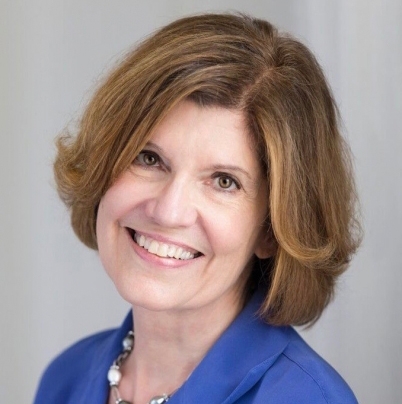Historian Draws Parallels Between Trump and Lindbergh

MIDDLEBURY, Vt. — Historian Lynne Olson, the author of the critically acclaimed New York Times bestseller “Those Angry Days,” drew parallels between the 1940 presidential campaign and the 2016 presidential campaign in her Charles S. Grant Memorial Lecture at Middlebury on October 7.
From the use of “America First” as a slogan to demands to halt immigration to hostility about isolationism vs. intervention abroad, Olson chronicled similarities between the rhetoric espoused by Charles Lindbergh 76 years ago and many of the beliefs put forward by Donald Trump today.
In 1940 a fierce debate was raging across this country, Olson said. Nazi Germany had invaded Czechoslovakia and Poland, France and Great Britain had declared war against the Third Reich, and the question was: Should the United States come to the aid of its European allies?
Aviator Lindbergh, whom Olson said was the most famous person on the planet except, perhaps, for President Franklin Delano Roosevelt, was an outspoken leader of the America First Committee. Lindbergh and his followers opposed going to war with Germany, while Roosevelt publically criticized Lindbergh and the organization’s isolationist views.
“Millions of Americans were swept up in the debate [in 1940] knowing that whatever its outcome, their lives would likely be profoundly affected. At stake was not only the survival of Britain, but the very shape and future of America. The issues involved in the 1940 debate are issues that we are still struggling with today.”
What should the United States be? Olson asked the more than 150 students, parents, faculty, and townspeople who gathered in Mead Chapel to hear her speech. “A country holding fast to isolationism refusing to get involved in foreign conflicts, or a country that comes to the aid of its allies?”
“Those issues of isolationism vs. interventionism, and the arguments for and against them, still resonate today and their echoes can be found in this year’s presidential campaign,” Olson explained.
“For example, in 1940 ‘America First’ was the name of the country’s largest and most influential isolationist organization. In 2016 Donald Trump made that phrase the centerpiece of his campaign. In a major foreign policy speech he announced, ‘America First will be the overriding theme of my administration.’ He tweeted it and turned it into a hashtag. He named his energy plan after it.”
The use of the slogan “was no accident,” Olson declared. “It was a deliberate effort [by Trump] to harken back to those who supported isolationism for America of the 1940s.”
The guest speaker, whom Professor of History James Ralph had introduced as one of the country’s foremost “public historians,” drew other parallels between the oratory of 1940 and the discourse surrounding the 2016 presidential election.
Charles Lindbergh, as the leader and spokesman of the isolationist movement, had little knowledge of and no previous experience in either politics or foreign affairs, said Olson, but what he did have, also like Trump, was immense celebrity.
Lindbergh “had become the most popular champion of isolationism… When Lindbergh talked, people paid attention. Even when he had no background in what he was talking about, people listened, again much like Trump,” Olson said. “Lindbergh was like a reality TV star from his decades in the public eye, and he was known for his xenophobia and his belief in white solidarity and supremacy… He tapped into people’s racism and fears.”
Similarly today, America’s increased diversity and expanded social freedoms, coupled with economic upheaval and the ongoing war against terrorism, “have produced a tidal wave of anxiety, tension, and anger, especially on the part of many white Americans who see the growth of multiculturalism in the United States as a personal threat.”
The Republican Party has grown more white and more intolerant as the country as a whole has grown more diverse, Olson said, and Donald Trump’s message depends upon convincing Americans that they are living in a country overrun by immigrants, much like Lindbergh did in 1940.
The Charles S. Grant Memorial Lecture honors a former Middlebury professor of history who passed away in 1961 at the age of 44. Previous speakers in the series have included Arthur M. Schlesinger Jr., Laurel Thatcher Ulrich, Robert Dallek, Pauline Maier, and David McCullough.

